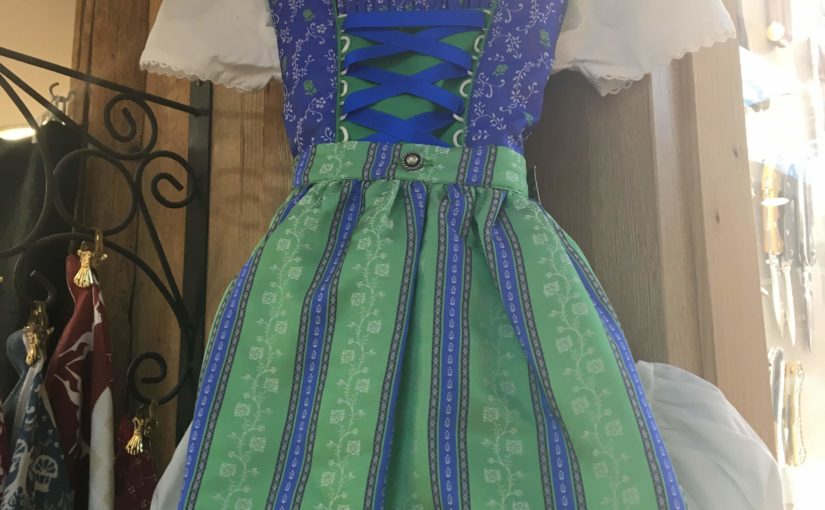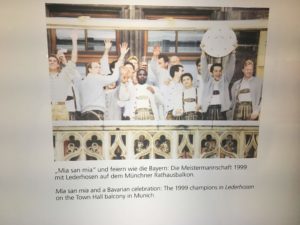Since I came to Germany already at a high level of German, my classes have been most useful for the details – I’ve been increasing and internalizing my vocabulary, learning new ways to use grammar, and I’ve had to work a lot on my pronunciation! One teacher in particular often corrects me on my pronunciation of Z’s and S’s. Even though German has mostly the same alphabet as English, that’s no indicator of similar pronunciations.
It can be tough to practice German out in the city when I speak with an American accent. Even if I speak in German to a cashier and in what I think is flawless German, they will often respond in English if I sound too foreign. They are just trying to be helpful, and yet it can feel condescending when I’m trying to practice my German. So one thing I’ve been focusing a lot on is putting on a German accent when I order. If I can get the intonation correct, I have a much better chance of improving and practicing my German. Sometimes I even pretend to have a more German-sounding name when I visit a place like Starbucks.
Another challenge in Munich has been the regional differences in speech that I never knew about before. It can be quite hard to understand the regional dialect, Bairisch, but here are three things I’ve noticed:
- Servus! Is a common greeting here in Munich. From what I gather, it’s a greeting between friends which means something along the lines of “At your service!”

- Grüß Gott! Is another common greeting here that you would never hear in northern Germany. I’m not exactly sure how to translate it – God’s Greetings, perhaps, or God Bless You. As I’ve noted in a previous post, Bavaria has a strong Catholic identity, and perhaps is one of the most religious areas in Germany at this time, where it still would be normal to hear and use this greeting.

- I mog di! Is Bairisch for I love you. This seems to me a large transformation from Ich liebe dich. You’ll see I mog di (pronounced ee moge dee) written in icing on cookies all over Munich. But the transformation of dich to di has touched some of my interactions with my host family. For example, when my host brother says “Ich werde di vermissen,” at first I wasn’t sure if he said “die” (pronounced dee), meaning “her.”

It’s been fun to pick up these tidbits of Bairisch as I improve my overall German!





















